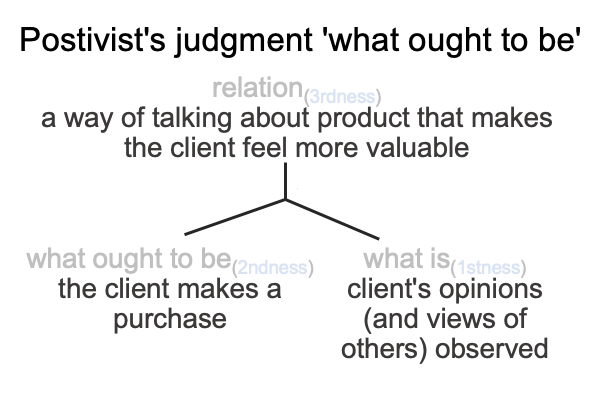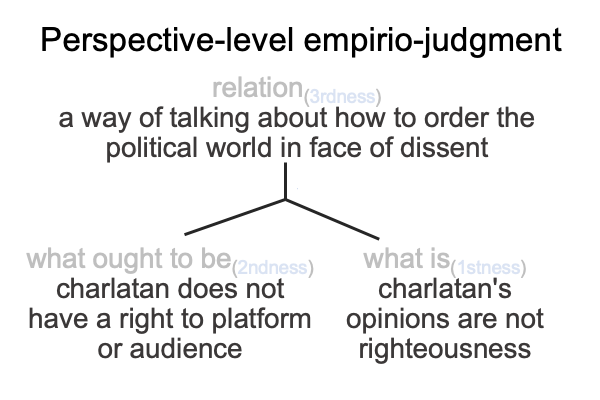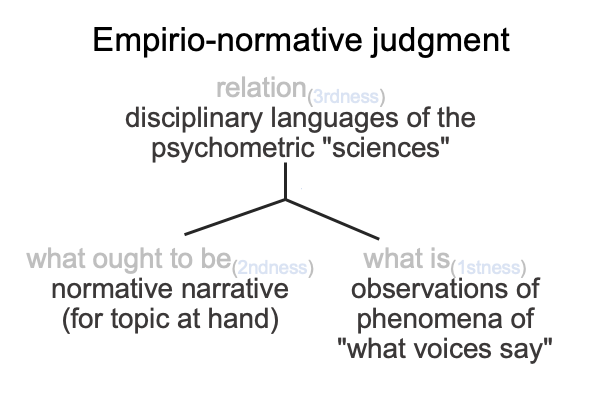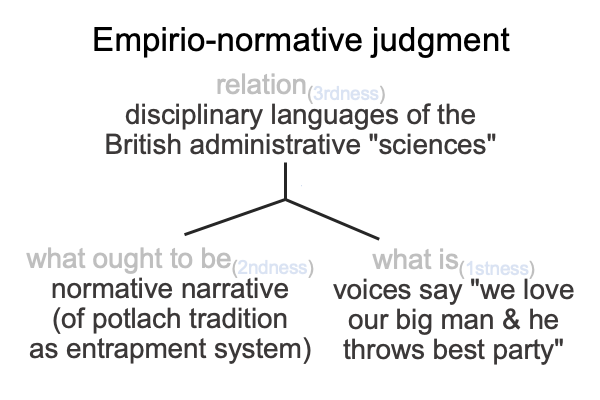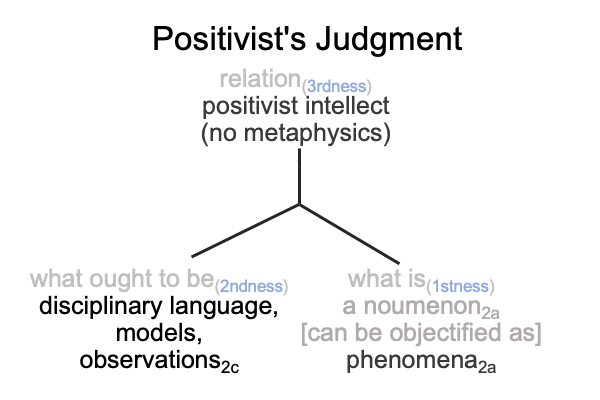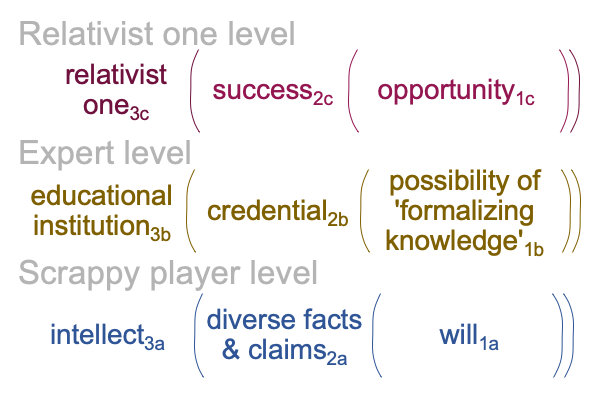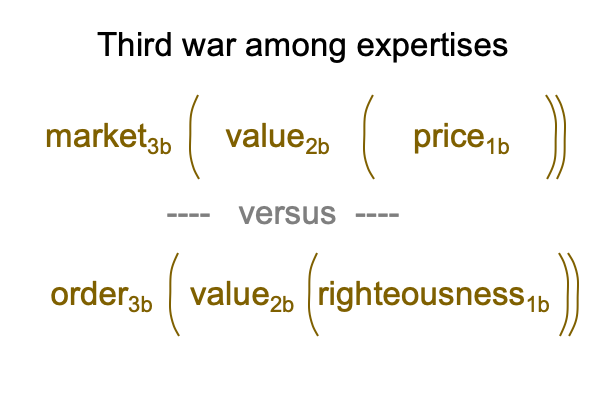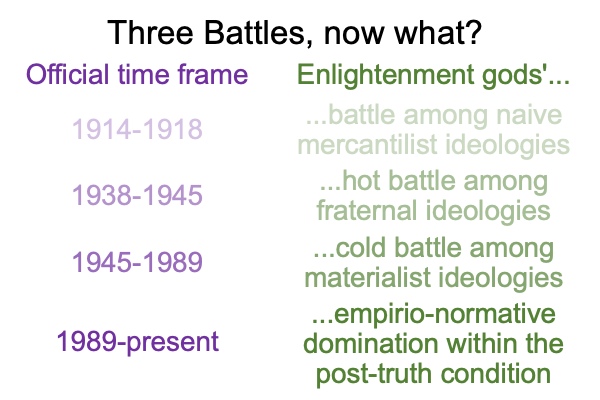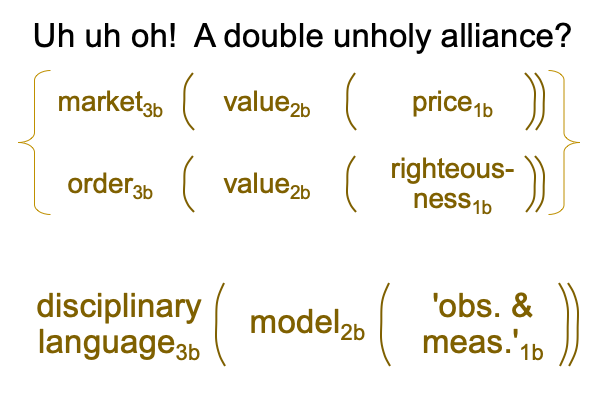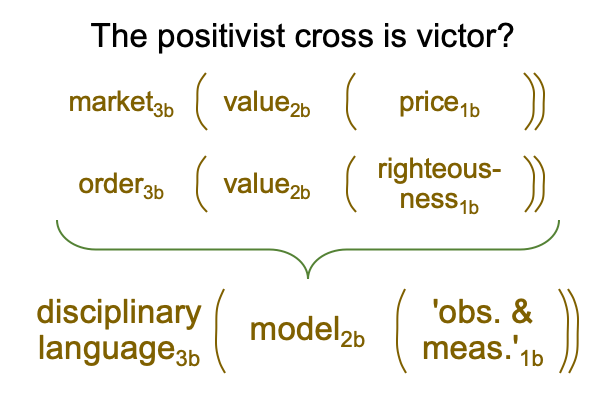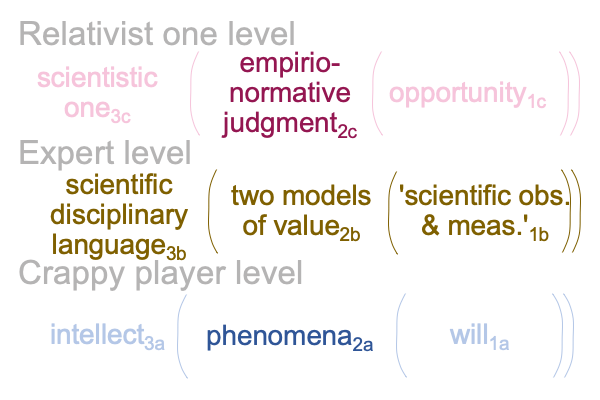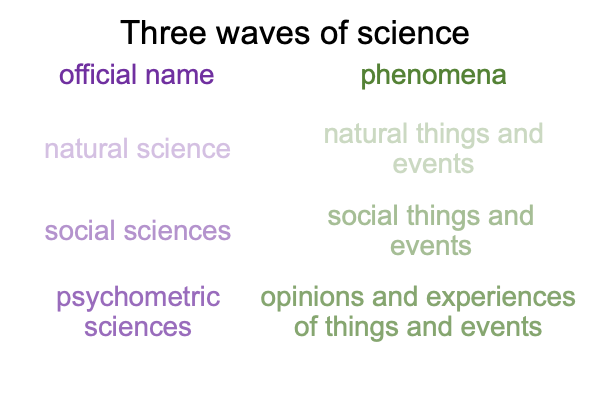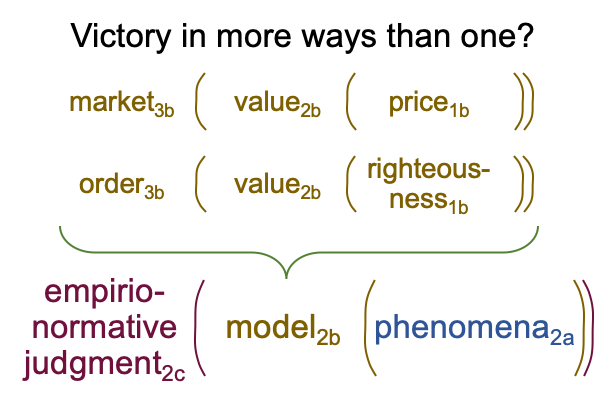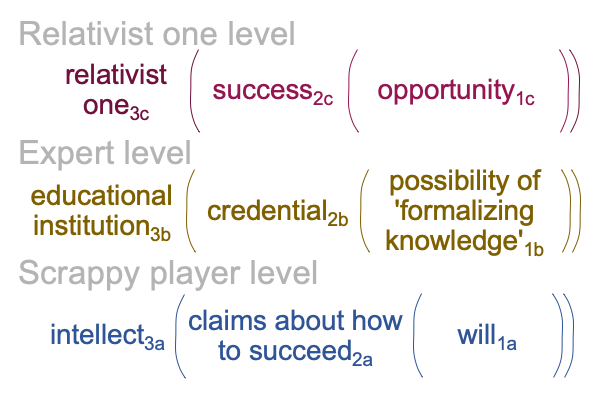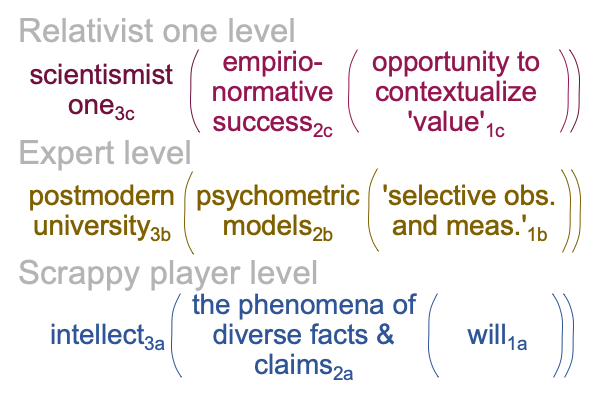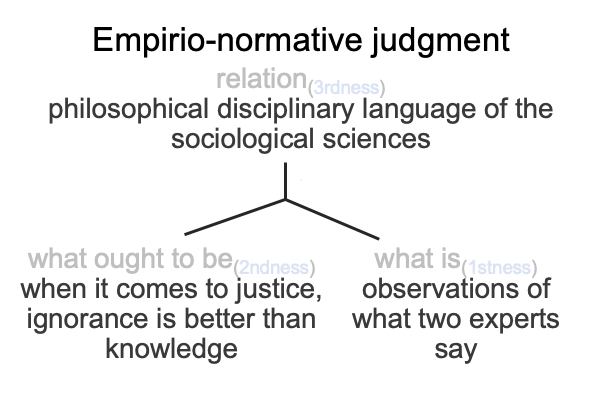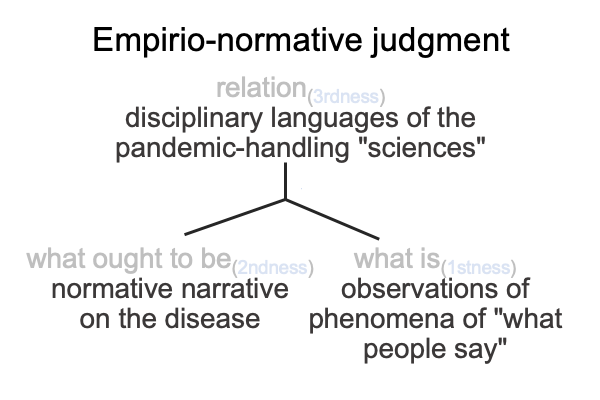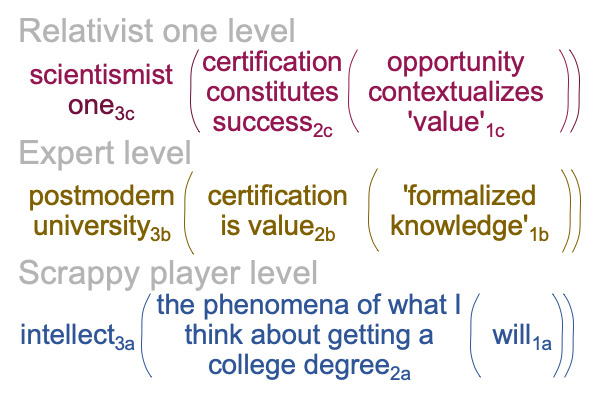Looking at Steve Fuller’s Book (2020) “A Player’s Guide to the Post-Truth Condition” (Part 11 of 26)
0097 Well, let me go back to the original interscope.
The perspective-level actuality2c looks a little awkward. Do I put the term, “empirio-schematic judgment2c” or “what ought to be of the Positivist’s judgment2c“?
How about “a triadic relation that ought to be empirio-schematic2c“?
Well, my solution is presented below in the cross of the positivist intellect.

0098 I ask, “Does this look anything like the questionable box of capitalism?”
The questionable box is presented below.
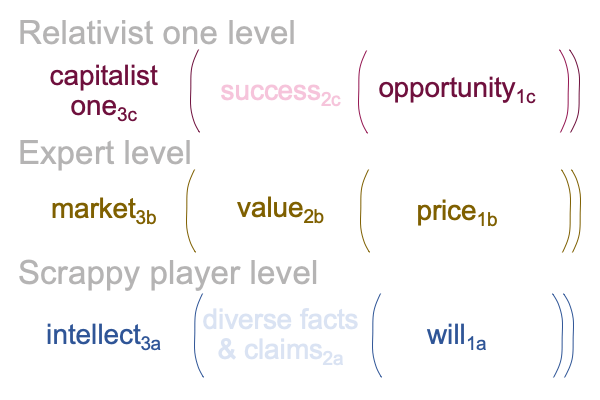
0099 Clearly, the answer is “no”.
Well, then, I ask, “Is there anything striking about a comparison?”
Clearly, the answer is “yes”.
The positivist cross is strong in regards to the perspective and content level actualities, precisely where highlights of the capitalist box are weak. The capitalist box is strong with respect to the perspective and content level normal contexts and potentials, where the positivist cross is weak.
Does that mean that the positivist’s cross and the capitalist box complement one another?
Yes, indeed, the complementarity suggests an alliance between situation-level category-based nested forms.
0100 Here is a picture.
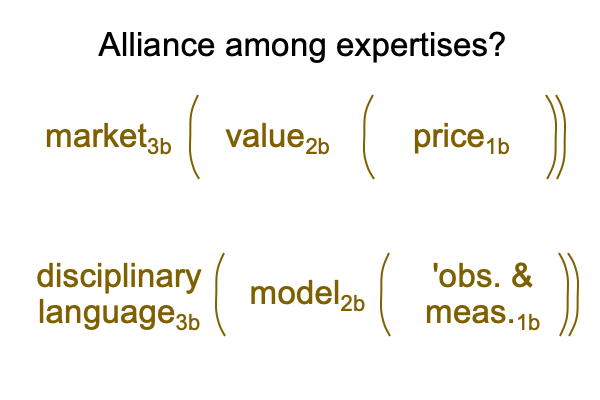
0101 In this alliance, market3b and disciplinary language3b align. Discourse about the market3b takes on the character of a scientific disciplinary language3b.
0102 This alliance manufactures models3b that define valuations2b as if price1b is an apparatus for observing and measuring1b phenomena2a, consisting of opinions and facts2a that… um… somehow determine or influence prices1b. If an opinion or a fact does not (somehow) convert into a price1b, then that opinion is disregarded by the capitalist expert3b.
An opinion or a fact2a can be converted into a price1b, that can be modeled2b, according to the disciplinary languages3bof some sales department, thereby creating opportunity1c in offering added value2b to a process1b that maximizes success2c for the capitalist one3c. Success2c moves the inquirer from phenomena2a to commitment2c (that is, a market purchase).
In short, science and capitalism mesh in a psychometric inquiry into how to induce people to make a market purchase.
0103 Yes, forget religion! Where is the money in that?
On second thought, how can one convert belief2a into a price1b? Pay for pray? Exactly what are we supposed to reckon as phenomena2a? Shall I ask the experts on marketing, sales, finance, accounting and so on? What fits the empirio-schematics?
Success2c for the capitalist one3c consists of something that seems to correspond to what ought to be (secondness) in the Positivist’s judgment.
At, the same time, success2c has the character of the positivist intellect. Why? Metaphysics is not allowed.
So, maybe I can oversimplify by saying, “Capital2c is a way of doing things that works… or… I should say… makes money.”
0104 Does this exercise of the scientific capitalist correspond to one portion of the title of chapter five of Fuller’s book?
That must be the “marketization of everything” portion.
0105 What about the “public relations as post-truth politics” portion?
Ah, there is another alliance. This time the alliance is between the situation-level for the socialist one and the empirio-schematic judgment unfolded onto the situation level.
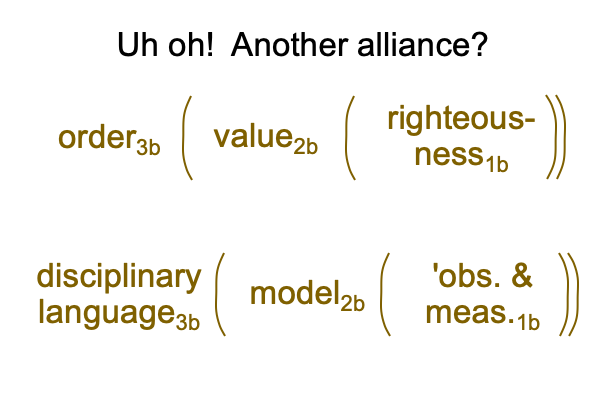
Does this alignment between science and socialism constitute the psychometric science of inducing people to buy into a political agenda?
0106 If so, then what does the public relations expert3b regard as phenomena2a?
An opinion or a fact2a can be converted into a righteousness1b, that can be modeled2b, according to the disciplinary language3b of a department of political “whatever”, who finds opportunity1c in demonstrating value2b with a process that maximizes success2c in moving someone from phenomena2a to commitment2c (that is, a political buy-in).
0107 So, what about a Christian who longs to save his soul from damnation?
Well, the expert at propaganda may regard this particular opinion2a as phenomena2a for a model2b that transforms longing for personal salvation2a into political action2b by promoting3b the notion1b that funding a particular government program devoted to poverty2b is an expression of Christian charity1b, rather than a government policy2c devoted to maintaining a political order3b that deprives poor souls2a of economic opportunities1c and convinces them3a that they are so worthless that this state-funded program is their only hope1a.
Does that one sentence cover all the bases?

